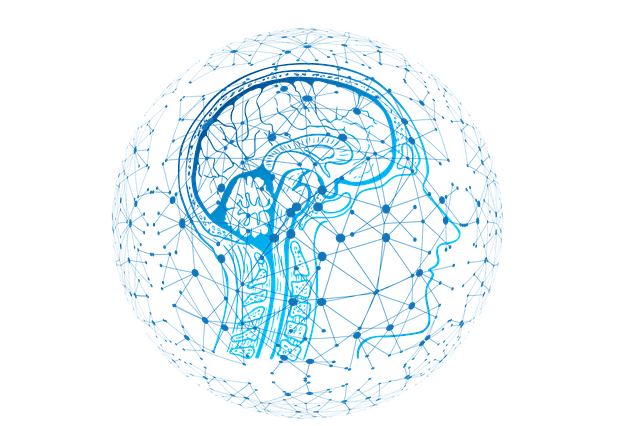With the world becoming smarter and more data inclined, it has become essential for start-ups to leverage data. Data not only gives them a competitive edge over other companies but is also the key to success in the modern day. However, creating an efficient data science team in the start-up ecosystem needs consideration of several factors such as the company’s funding stage, growth stage or the extent to which their product or service is based on machine learning.
In this article, we analyse how start-ups at different stages can build their Data Science teams. We also look at some of the common pitfalls start-ups face when building them.
Register for Analytics Olympiad 2021>>
Growth Stage Vs Use Of ML
Two factors play a significant role in determining the steps needed to build a Data Science team in a start-up. The first aspect is the maturity of the organisation. A start-up’s maturity can be categorised based on factors such as revenue, user base, or funding. These factors help differentiate between an early-stage start-up and a mature one. The second aspect is the extent to which artificial intelligence is at the core of their products. Almost all tech companies are data-centric today, with most start-ups leveraging data for day to day decision making. AI-centric companies are organisations where AI is the key differentiator in their product or service offering.
Source: Author
This matrix describes the four possible combinations between the maturity of the organisation and the extent to which AI is at the core of its product/service. The X-Axis maps the maturity of the organisation while the Y-Axis maps its AI centricity.
AI-Centric + Early Stage
AI-centric start-ups are organisations where AI is at the core of their product and service, differentiating them from competitors. AI-centric companies include (but are not limited to) enterprises offering NLP powered chatbots, image detection, SaaS, smart assistance, etc.
In AI-centric start-ups, data science has to be one of the first teams that are established. Since data-powered IPs are at the centre of the company’s offerings, it is integral to onboard a Principal Data Scientist or a Head of Data Science in the early stages. This must be someone with extensive experience and knowledge in the Data Science field. Given their expertise, they can leverage their experience to solve complex AI & ML problems.
Given the start-up’s limited bandwidth, the Head of Data Science can build a small but experienced team. This means onboarding experts with in-depth knowledge and higher work experience into the team. For instance, in a start-up providing NLP products, roles such as NLP architect/NLP engineer should be a top priority. The idea for the DS team at this stage is to stay focused and say ‘No’ more than ‘Yes’ to different demands from stakeholders.
Core algorithms should be the focus of this team. Only after these algorithms are well built and successfully tested should the organisation consider scaling up. Analytics or ML for other initiatives such as SEO or marketing growth-related can be executed later.
At the same time, a small ML Ops team is essential to support the Data Science team and sustainably test the algorithms. Hence, building the ML Ops team responsible for scalable model deployments should begin from an early stage.
AI-Centric Companies + Mature Stage
Once a start-up with a core ML offering starts generating more revenue, the focus can shift to expanding the data science team. The small initial team of experts should grow to include more analytics and leadership roles.
Depending on the products offered by the company, one should hire more data scientists or ML engineers to develop complex analytical solutions, data engineers to work with data integration and distributed computing, data architects to oversee cloud services and provide system-wide insights and data analysts to perform reporting and BI.
Hiring for leadership roles like chief data officers (CDOs) or chief analytics officers (CAOs) is also important. They will play a crucial role in directing teams efficiently.
Non-AI-Centric (but Data-Driven) + Early Stage
Organisations that don’t have AI at the core of their product don’t need data science in their initial stages. Since their products are not in need of AI-based solutions immediately, the companies should initially focus on establishing a good data foundation. This involves setting up the right data instrumentation and plumbing the data pipelines to create a base for AI in the future.
For instance, the initial focus for an eCommerce company revolves around operational efficiencies. They could set up a data analytics team at the start but can function without an ML team in the initial months.
See Also
Once the company starts growing, leaders can consider establishing a data science function to leverage ML for exploring revenue opportunities.
Non-AI-Centric (but Data-Driven) + Mature Stage
The correct time to build a data science function for an organisation that is not built around AI is when it achieves a certain level of maturity. At this stage, organisations can start with building a core data science team consisting of Data Scientists, Data Engineers, and Data Analysts.
An organisation would have already built a centralised data management system with well oiled dashboarding and reporting systems to consolidate the organisation’s data for the team to base analytical insights and solutions upon. These organisations can now shift their focus to building state-of-the-art data science models to start bringing in data to drive strategic and long term decisions.
Data scientists could initially start with naive heuristics and simple models to understand the evolving problem space. Once they have gauged the nature of the problem at hand, they can proceed with more complex models.
Non-tech based organisations can combine in-house IT specialists with external consultants to efficiently develop a data warehouse. Furthermore, this data should be democratised to empower any team member to access the data at any given time and generate business insights.
This article is written by a member of the AIM Leaders Council. AIM Leaders Council is an invitation-only forum of senior executives in the Data Science and Analytics industry. To check if you are elgible for a membership, please fill the form here.
Subscribe to our Newsletter
Get the latest updates and relevant offers by sharing your email.
Join our Telegram Group. Be part of an engaging community
Mathangi Sri
Mathangi Sri currently works as the VP of Data Science & Head of Data at Gojek. She has 17+ years of proven track record in building world-class data science solutions and products. She has overall 20 patent grants in the area of intuitive customer experience and user profiles. She has recently published a book – “Practical Natural Language Processing with Python”
Source: https://analyticsindiamag.com/council-post-how-start-ups-can-build-grow-a-data-science-team/


